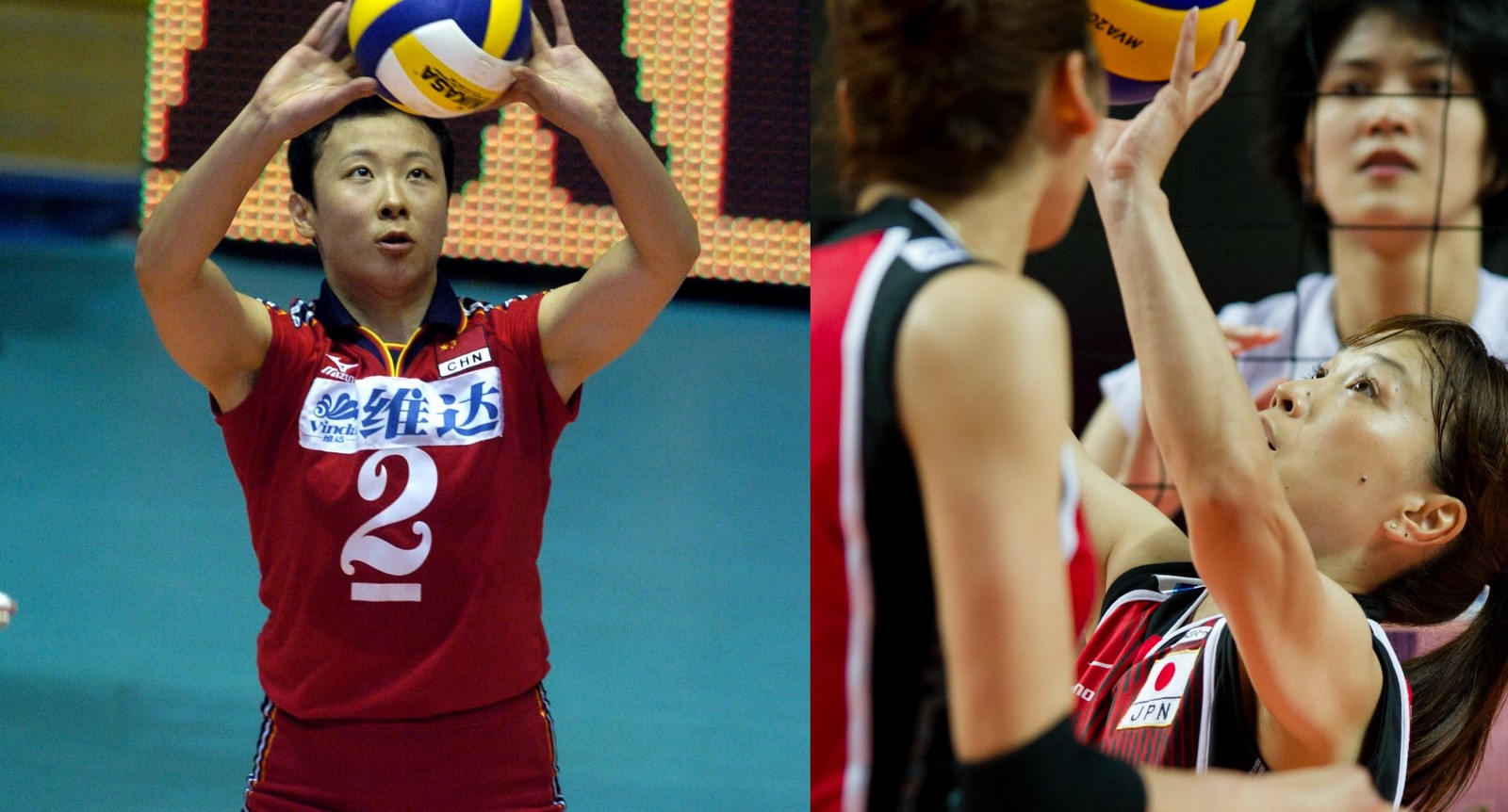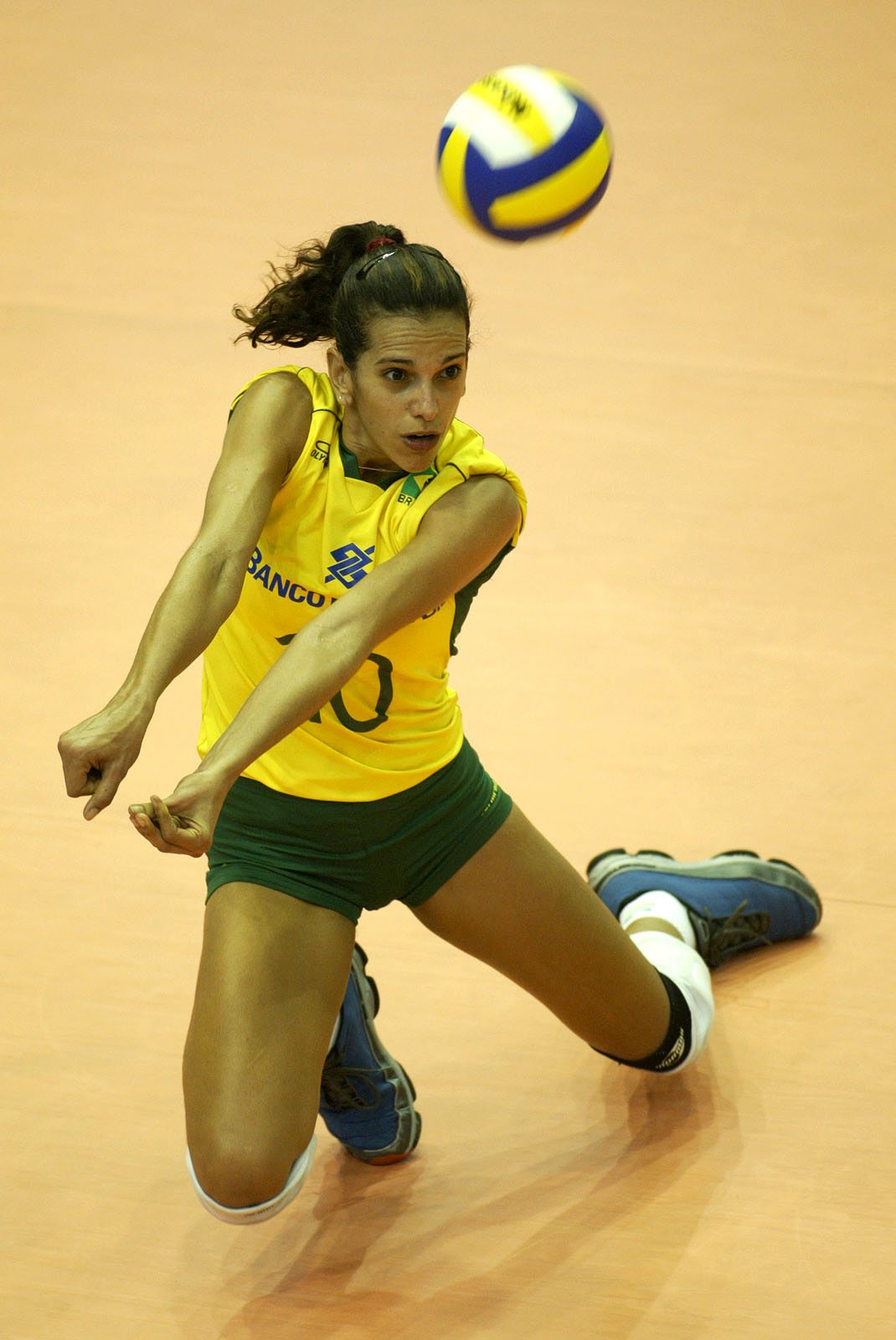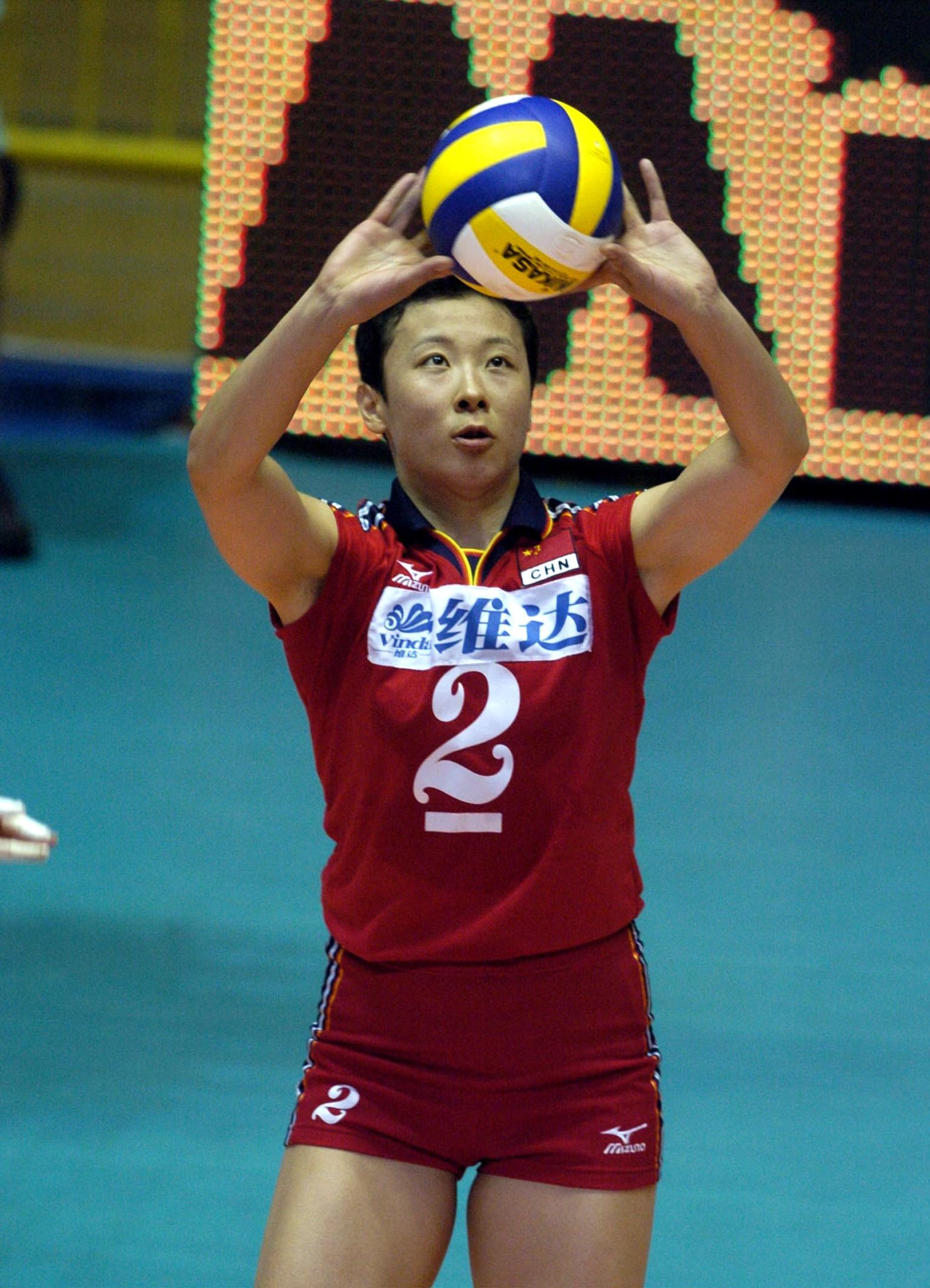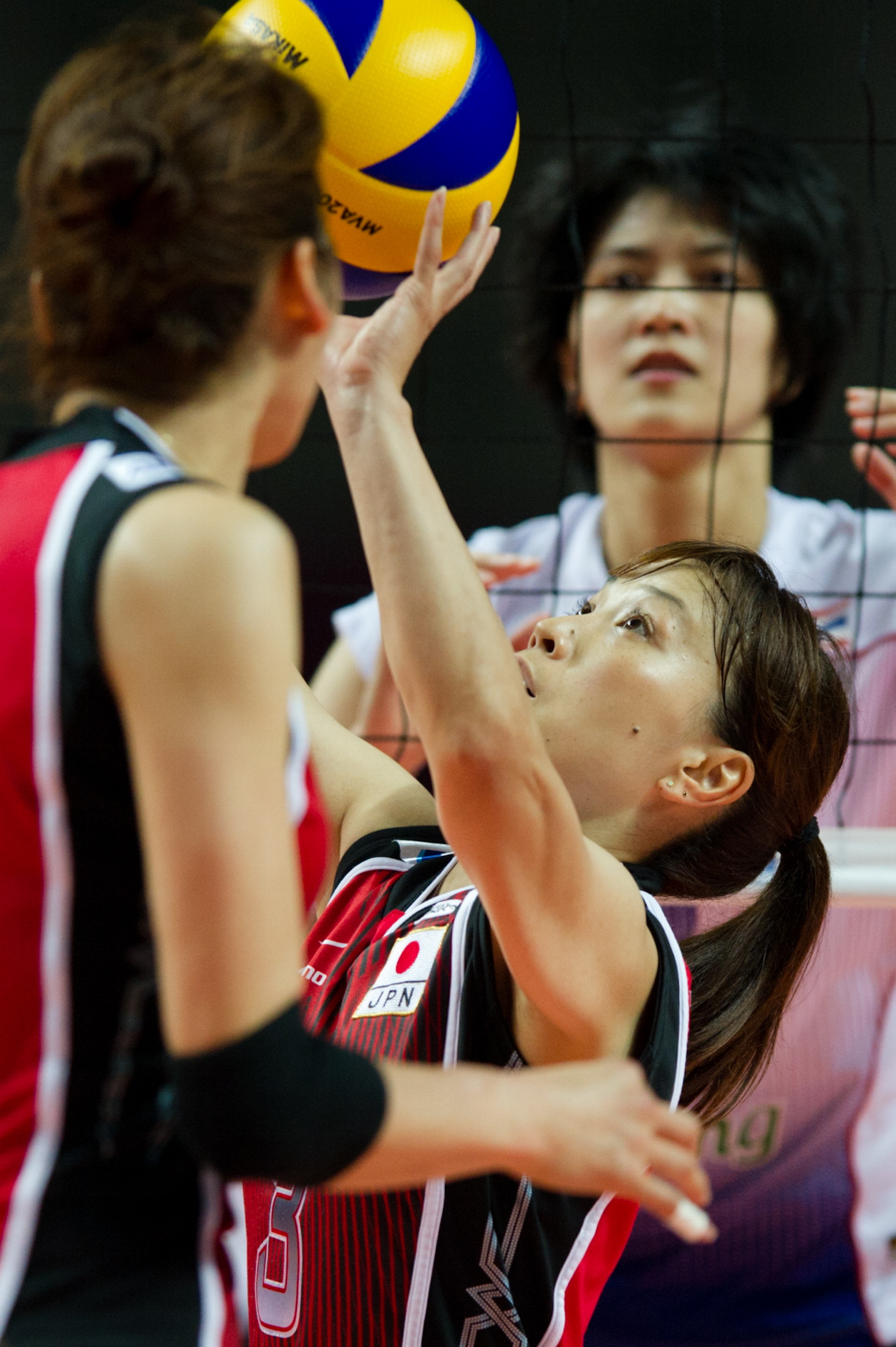This is just awesome!
Power of 3!
Brazil’s Virna Dias, Feng Kun from China and Japan’s Yoshie Takeshita share their thoughts in a series of blog entries released by the FIVB about the Grand Prix Finals.
Virna Dias
This year’s exciting World Grand Prix will come to an end on Saturday. Virna Dias, former star of the Brazil national team, takes a look back on the volleyball action since the start of the tournament and tells FIVB.org who she expects to see holding the trophy high at the end of the season.
“The first year in a new Olympic cycle is always interesting as national teams change in dynamic and character as new players are introduced to the line-up and play side-by-side the more experienced athletes on the team. Almost all the teams that played in the World Grand Prix this season featured new players, which meant we saw lots of new talent gaining prominence on the courts. While these players had the chance to learn from the best, it also ensured the experienced members of the team worked hard to maintain their best form.
“I believe that the increase in the number of teams has been extremely beneficial to the quality of volleyball that we have seen at the 2013 World Grand Prix as the competition has been stiff compared to other years.
“China has made an excellent come back and they are the team to watch out for in the years to come as I certainly feel they are in with a chance for a medal at the Olympic Games in 2016.
“This has been a close competition so far and the finalist teams have been equal in skill and talent. I was not surprised to see Brazil in Sapporo as they have qualified for the Finals ever since 2003. China and Serbia are in great shape while Italy’s traditional volleyball school has held it in good stead over the competition. The US had to fight hard for their place in the Finals and while it is a pity they will miss out on a medal this year, their young team has come far under the leadership of Karch Kiraly. The Japanese players have also ensured that they have given their best to the local fans during their matches.
“Every match in this year’s World Grand Prix has been a hard one and the finalists have had to fight hard to earn their place in Sapporo. All the players have given their best but it will be the team that stands up best to the pressure and is able to keep its mental focus who will achieve the top spot on the podium.
“I believe that Brazil has a good chance of winning the gold medal this year. We have a excellent team and this new Olympic cycle has introduced some gifted players like Gabi, Camila Brait and the twins Michelle and Monique.
“Above all Brazil has Ze Roberto, a fantastic coach who may be obstinate at times, but who understands the female psyche well and knows how to lead and help his team achieve larger goals.
“I will be watching and keeping my fingers crossed that Brazil can once again take the top spot on the podium this year!”
Per FIVB: Virna Dias is a former Brazilian national team player and three-time Olympian. She won bronze at the 1996 Atlanta and 2000 Sydney Games and finished fourth at the 2004 Athens Games. Virna also won the 2004 FIVB Volleyball World Grand Prix and clinched silver in 1999, where she also claimed the MVP, Best Receiver and Best Scorer awards. She was also a FIVB Volleyball Women’s World Cup silver medallist in 2003.
Feng Kun
As the six finalist teams start counting down the days to the World Grand Prix Finals in Sapporo (Japan), Feng Kun, former star player of China’s national volleyball team shares her views of the action so far and what volleyball fans can expect to see at the Finals this year.
“Time flies. I still remember the final match of the 2003 World Grand Prix Finals in Italy, where China beat Russia in straight sets to win the World Grand Prix title for the first time ever. The triumph in the World Grand Prix was an important confidence boost and China went on to clinch back-to-back titles at the World Cup in Japan and the Olympic Games in Athens. For me and my colleagues, it really was the best time of our careers.
“This year is the first year of the new Olympic circle and I believe the World Grand Prix Finals in Sapporo will be entertaining to watch. Almost all the best teams in the world have recruited some new players and it will be interesting to observe the performances of the new up-and-coming talents to see who will be the superstars of tomorrow. The experienced players will also be working hard to continue their best form and keep their top level of playing.
“Although I have not had the opportunity to watch many matches in the preliminary rounds except those involving China, I have been following the news and reports of the World Grand Prix closely. The USA and Serbia were in great shape and I believe the competition in the Finals will be wide open and every team in Sapporo will have the same chance to vie for the top honour. The Finals are totally different from the preliminaries because the players are under greater pressure and mental focus will be very important, especially to the young players. I am looking forward to seeing some fierce competition and outstanding performances from the best teams in the world.
“The Chinese team has won nine matches in a row in the preliminary round under the guidance of Lang Ping. Importantly the preliminary round gave Lang Ping the opportunity to try different players and line-ups and get familiar with her team. I am pleased to see China enter the Finals as the top finisher in the preliminary round, but the players now need to put this behind them and concentrate on this coming weekend’s matches. They should just do the best they can. Of course they will try to take every opportunity to win, but the goal of the team for this tournament is not winning the title, but looking for their best line-up and improving overall performance.
“In my opinion, it will be interesting to watch Zhu Ting, a young side attacker who was recruited from the national youth team by Lang Ping. She is young and talented and has the potential to become a superstar in the future.
“The Chinese setter Shen Jingsi is also worth watching. She was selected for the national team over the last four years, but this will be the first important tournament she will play as a starting setter. As a retired setter, I will be watching her play closely. And I also expect great performances from veterans Wang Yimei, Hui Ruoqi and Zhang Xian, who are in a golden time of their volleyball careers.
“I am also pleased to see that the Challenge System will be used in the World Grand Prix Finals for the first time ever. I think it’s a very good idea to bring this technology into the sport of volleyball. The competition in this tournament gets stronger every year and from my experience controversial calls affect the moral of players quite significantly sometimes. I think the introduction of the Challenge System will make the game fairer and help referees make better and more accurate decisions.”
Per FIVB: Feng Kun is a former Chinese volleyball who retired in 2011. In a distinguished career Kun won many titles, including gold at the 2004 Athens Olympic Games – where she was also named MVP and Best Setter – and bronze at the 2008 Beijing Olympic Games, the 2003 FIVB Volleyball Women’s World Cup, the 2001 FIVB Volleyball Women’s World Grand Champions Cup and the 2003 FIVB Volleyball World Grand Prix where she was also the Best Setter. She was also the Athletes’ Role Model at the inaugural Youth Olympic Games in Singapore in 2010.
Yoshie Takeshita
In a blog entry released by the FIVB, Yoshie has high hopes for her former team and shares a bit of her decision on her retirement.
Japan made an excellent start to their 2013 World Grand Prix campaign. And as the city of Sapporo gets ready to host the Finals, the Olympic bronze medalists hope to make the home crowd proud by winning a place on the podium for the first time ever. Former star player Yoshie Takeshita looks back on Japan’s excellent performance so far and assesses the team’s chances of taking the title this year.
“I was very pleased with the level at which Japan performed in the preliminary round of this year’s World Grand Prix and the team has set the standard high for themselves. They won their first six matches in the tournament, eventually ending the preliminary round securing seven wins in nine matches. And it was not an easy task as Japan faced some strong competition over the three weeks.
“But Japan’s achievements this season come as no surprise.
“Japan has a good set of players this year, including three Olympians from last year’s bronze medal team in London in the form of Saori Kimura, Yukiko Ebata, Risa Shinnabe. The richness of their experience has been vital in helping the younger players get comfortable on the court and a get a handle on the pressures of high level competition.
“Although the new team started playing together only last spring, they have shown a remarkable willingness to communicate and work together. In my opinion this is the key quality of the team and one of the main reasons they have succeeded in spite of not having too much time to prepare for the World Grand Prix. I know that this will help each player to put forward their best performance for the greater good of the team.
“Importantly, the women have coach Masayoshi Manabe leading the way. And the assistant coaches, therapists, analysts and other expert staff have all the requisite know-how to help the team succeed. And they work well together to ensure that the team plays a powerful and intelligent game. The players also receive a great of support from their entourage and I am more convinced than ever that Japan have what it takes to be number one this year.
“But if the preliminary round has taught the Japanese team anything, it is that they cannot let down their guard. Now, more than ever, it is important that the team learn from the mistakes made over the three weeks of matches in order to improve their game. This will be the only way they can head off the challenge from the other five teams in the Finals.
“Is it difficult to watch the action from the sidelines this year?
“My decision to retire from the sport after the Olympic Games in London was the right one for me as it has allowed more time for my family. Also it was necessary to make place for the younger generation. I had my turn and as with all professional volleyball players, we know the time to leave will come eventually.
“This is not to say that I have stepped out of the sport completely. As a player one of my aims was to send a strong message to the young boys and girls of Japan that anything is possible with determination and perseverance – even if you are well below the height of the average volleyball player! I now try to instill this message in the children who I teach at the volleyball clinics. I am also a TV commentator, which ensures that I am still up to speed with all the happenings on the court.
“After winning the bronze medal at the 2012 Olympic Games in London, I said that my generation of players did not really feel the honour of the bronze medal that Japan won at t”he 1984 Olympic Games in Los Angeles. To be back on the podium in London after such a long time was an achievement for the Japanese volleyball family and I do hope that we can continue this trend by winning a medal on home ground in the 2013 World Grand Prix.”
Per FIVB: Yoshie Takeshita is a former volleyball player from Japan who played for the national women’s team and the JT Marvelous Club. She was on the national team that took part in the 2004, 2008 and 2012 Olympic Games, helping Japan to a bronze medal in London last year. At 159 centimetres, Takeshita has earned the title of the ‘World’s Smallest and Strongest Setter’ and was Japan’s number one setter during her career on the national team. She was the captain of the Japanese volleyball team during the 2006 World Championship where she took the Most Valuable Player award. She was also helped her team to a bronze medal in the 2010 World Championships. Takeshita announced her retirement from professional volleyball on July 26, 2013.
Click HERE for our complete coverage of the 2013 FIVB Grand Prix (including live links!)
(source & images: FIVB)




